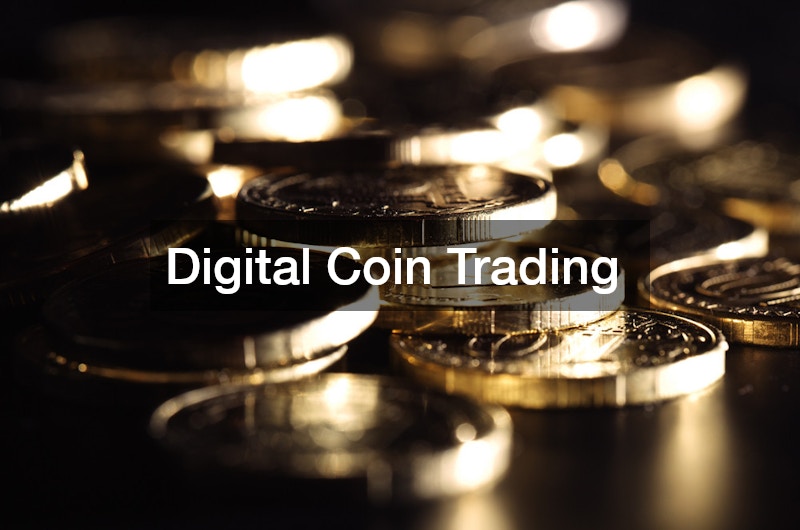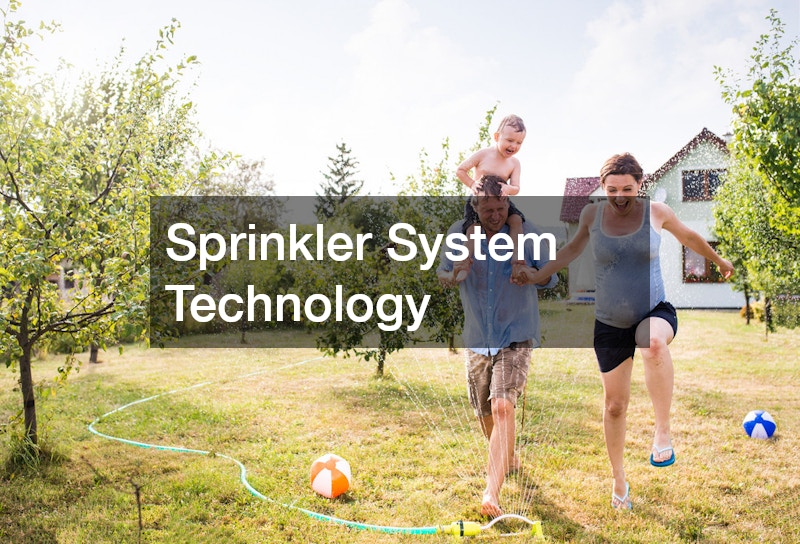Over the past few decades, technological advancements have reshaped nearly every industry. Innovations ranging from automation to digital tools have significantly enhanced efficiency, safety, and overall performance. This transformation isn’t just changing how businesses operate; it is setting new benchmarks for success across various sectors. Such progress can be observed in numerous fields, from pest solutions to restaurant supplies, demonstrating technology’s critical role in business evolution.
As the world becomes increasingly interconnected, industries are harnessing technology to streamline their operations and meet new challenges. This broad adoption of technology is fueled by the need to improve efficiency, meet consumer demands, and tackle global issues such as sustainability. Industries leveraging technology are not only surviving but thriving, showcasing how essential it has become to adapt to new technological landscapes.
The following sections will delve into specific industries to illustrate how advances in technology have profoundly shifted their dynamics. Through a detailed exploration of modern pest solutions, smart manufacturing, and more, we will uncover how technology has moved these industries forward. Each section will highlight both general and specific technological impacts, providing an in-depth look at transformation within these sectors.
Modern Pest Solutions
In recent years, the pest control service sector has undergone significant technological enhancement. Innovations such as the use of AI-driven systems and drones have revolutionized how pest control is conducted. These advancements allow for more precise and effective management, minimizing the use of harmful chemicals and ensuring environmental safety.
One prominent development in modern pest solutions is the integration of sensors and automated tools that monitor pest activity in real-time. These technologies enable companies to act swiftly, targeting problem areas efficiently and reducing reliance on traditional methods. Moreover, the use of eco-friendly products is becoming a standard, aligning with the global push toward sustainability.
The impact of technology on pest control services has been profound, as it not only improves efficacy but also reduces costs. Companies adopting these technologies are witnessing enhanced customer satisfaction due to more effective and environmentally safe solutions. Overall, modern pest solutions exemplify how technology can drive industry advancements in both performance and sustainability.
Smart Manufacturing Methods

Smart manufacturing methods are reshaping the production landscape, heralding a new era of cutting edge manufacturing. The incorporation of IoT, AI, and machine learning in factories is revolutionizing operations, offering unparalleled levels of efficiency and output quality. These technologies allow for real-time monitoring and adjustments, reducing waste and optimizing resource use.
Specific advancements, such as robotics and 3D printing, have significantly impacted how products are designed and created. Robotics enhance precision and speed while reducing human error, making production lines more reliable and effective. Meanwhile, 3D printing introduces flexibility in manufacturing, offering customization without the need for extensive retooling.
The impact of these smart methods can be seen in reduced lead times and higher customization, meeting modern consumer demands with ease. As companies continue to embrace these technologies, the definition of cutting edge manufacturing is expanding, leading to innovative business models and new opportunities in the manufacturing sector.
Roofing Tech Innovations
The roofing industry has seen significant transformations due to advanced technologies. Innovations in materials and techniques have paved the way for commercial roofing professionals to deliver better service and products. From weather-resistant materials to smart roof systems, roofing technology is evolving rapidly.
In particular, the development of energy-efficient roofing materials has been a game-changer. These materials not only offer durability but also contribute to energy savings, reflecting a growing trend toward sustainability. Additionally, the use of drones for inspection purposes enhances safety and accuracy, allowing roofing experts to assess damage without physical risks.
Overall, roofing tech innovations have allowed commercial roofing professionals to improve their services, offering clients better value and peace of mind. With these advancements, the industry is not only enhancing its output but also contributing to ecological preservation, proving that technology can lead to more sustainable practices across various sectors.
Digital Coin Trading

The financial landscape has been revolutionized by digital coin trading, a burgeoning industry driven by technology. As cryptocurrencies gain traction, platforms for trading have adopted advanced technologies to enhance security and usability. This evolution is attracting more coin buyers and different profiles of investors to the market.
Blockchain technology, which underpins cryptocurrency, ensures transparency and security, key factors in building trust among users. Improved trading algorithms and AI tools also provide deeper market insights, helping traders make informed decisions and react swiftly to changes in the market.
The rise of digital coin trading platforms has democratized access to investment opportunities, enabling small-scale coin buyers to participate alongside institutional investors. This democratization is reshaping financial markets by offering new forms of wealth generation and asset diversification, displaying how technology continues to redefine finance.
Automated Car Wash Systems
Manual car washes are becoming a thing of the past as automated car wash systems take center stage. These systems leverage technology to enhance efficiency, offering time savings and consistent quality for vehicle owners. Driven by the demand for faster service, automated systems represent a significant leap in car care technology.
Specific advancements include the use of sensors and computer-guided systems that ensure precision in cleaning, adapting to different vehicle types without manual intervention. Moreover, water recycling technologies are increasingly being integrated into automated car washes, reflecting the industry’s move toward sustainability by reducing water consumption.
For businesses, adopting automated car wash systems means increased throughput and reduced labor costs, resulting in higher profitability. As these systems become more accessible, the technology is providing consumers a more convenient option, highlighting tech’s impact in transforming everyday services like car washes.
Crane Operation Upgrades

The field of crane rental and operations has seen impressive technological improvements, enhancing safety and efficiency. Modern cranes are now equipped with sophisticated systems, from automated control features to 360-degree cameras, allowing operators greater control and precision in lifting tasks.
Automation in cranes, such as anti-sway technology and load monitoring systems, ensures safe and precise operation, minimizing human error. These features allow operators to undertake complex tasks more easily, reducing the risk of accidents and enhancing overall project safety. Additionally, GPS-enabled tracking and remote diagnostics allow rental companies to monitor crane usage, schedule preventative maintenance, and reduce downtime, optimizing fleet performance and extending equipment lifespan.
With crane rental businesses leveraging these technologies, operations are streamlined, resulting in faster and more reliable service delivery. As cranes become smarter and more capable, they play a crucial role in modern construction projects, emphasizing technology’s potential to elevate heavy industry operations. Training programs for operators are also evolving, focusing on digital interfaces and automated control systems, which further enhances safety, efficiency, and overall operational excellence in the industry.
Eco-Friendly Oil Disposal
The disposal of cooking oil has become significantly more sustainable due to technological advancements in recycling and reprocessing methods. A local cooking oil disposal company can utilize innovative systems to convert used oil into biodiesel, turning waste into valuable resources.
Advanced processing techniques allow for the effective cleaning and conversion of cooking oil, ensuring environmental compliance and reducing landfill waste. These methods not only align with environmental goals but also create economic opportunities in biofuel production, showcasing technology’s ability to drive eco-friendly practices. In addition, modern collection and tracking systems enable companies to efficiently manage oil pickups from multiple locations, minimizing transportation emissions and operational costs.
This transformation in oil disposal methods underscores the crucial role local cooking oil disposal companies play in both the environment and the economy. With technology at the forefront, the industry is achieving new standards in sustainability and resource efficiency, highlighting the broader impact of tech-driven practices. Public awareness campaigns and partnerships with restaurants and commercial kitchens further amplify the positive effects, creating a more circular economy while positioning these companies as leaders in eco-conscious innovation.
Sprinkler System Technology

Fire protection has seen a significant shift with the rise of advanced fire sprinkler system installation techniques. As these systems become more sophisticated, they offer enhanced protection and reliability, playing a critical role in modern building safety solutions.
Sensors and smart technologies are now integral to sprinkler systems, facilitating timely and precise activation during emergencies. These systems can be remotely monitored and adjusted, ensuring they remain ready to operate at all times and deliver effective fire suppression when needed. Integration with building management systems allows for centralized monitoring, automated alerts, and maintenance reminders, improving system reliability and reducing downtime.
Through technological advancements, fire sprinkler system installations are not only more effective but also more accessible, protecting lives and properties better than ever before. Modern systems also incorporate environmentally friendly materials and efficient water use, aligning safety with sustainability. This progress exemplifies how safety measures are benefiting from technology, underlining the importance of evolving practices in the fire protection industry. As a result, building owners, facility managers, and emergency responders now have smarter, more reliable tools to prevent fire damage and safeguard occupants.
Towing Tech Advances
The towing industry has embraced technological advancements to enhance service delivery and efficiency. Heavy towing is becoming more sophisticated with innovations that improve vehicle recovery and transportation, leading to faster response times and safer operations.
Technologies such as GPS tracking, automated dispatch systems, and enhanced hydraulic systems have redefined heavy towing capabilities. These tools allow companies to manage fleets more effectively, ensure rapid response, and provide precise lifting capabilities, making towing services more reliable and efficient. Additionally, mobile apps and customer notification systems improve communication, giving clients real-time updates and reducing wait times. Integration of telematics also allows monitoring of vehicle health and driver performance, further optimizing operations.
With these technological upgrades, companies offering heavy towing services can better meet customer expectations, exemplifying how the industry uses technology to enhance traditional practices. The move toward smarter towing solutions highlights the transformative effect of innovation across transportation and service sectors. By continually adopting advanced equipment and software, towing companies not only improve operational efficiency but also enhance safety, accountability, and customer satisfaction, positioning themselves as modern service leaders in a competitive market.
Streamlined Restaurant Supplies
The restaurant supply industry is experiencing a digital transformation that is helping streamline operations from procurement to inventory management. Innovations in e-commerce and supply chain technology are providing restaurant suppliers with tools to optimize their operations and improve service delivery.
Technologies such as online ordering platforms and AI-driven demand forecasting help restaurant suppliers efficiently manage stocks and cater to customer needs precisely. Meanwhile, automated inventory systems reduce waste and improve order accuracy, ensuring smooth and uninterrupted service for restaurateurs. Mobile apps and real-time tracking further allow suppliers to monitor deliveries, manage logistics, and maintain transparency with clients, creating a more reliable and efficient supply chain.
This technological shift is helping restaurant suppliers offer better service and respond swiftly to market changes. With advancements in supply chain management, the industry is prepared to meet modern demands, emphasizing technology’s role in making food service faster, more reliable, and customer-focused. Additionally, integrating data analytics enables suppliers to anticipate trends, plan promotions, and optimize product selection, giving restaurants a competitive edge. These tools collectively strengthen operational efficiency, reduce costs, and improve overall customer satisfaction, positioning suppliers as indispensable partners in the rapidly evolving food service industry.
As illustrated throughout this article, technological advances are markedly transforming a wide array of industries. From pest control services to advanced fire sprinkler system installation, technology is propelling these sectors into new dimensions of efficiency, sustainability, and innovation. Such progression underscores the necessity for industries to embrace technology not only as an asset but as a key component of strategic growth.
The continued integration of technology into industries such as cutting edge manufacturing and crane rental shows that innovation drives competitiveness and market differentiation. By adopting new tools and systems, businesses can not only enhance their operations but also create new opportunities and standards within their industries.
The intersection of technology and industry is crafting a future where business potential is maximized, operational efficiency is heightened, and sustainability is prioritized. As companies continue to leverage technology, they are poised to redefine their sectors, setting new norms of success and demonstrating technology’s pivotal role in moving industries forward.
